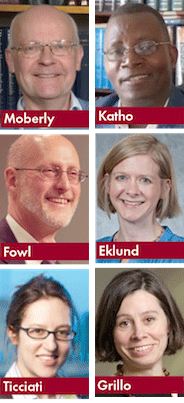

In the last few decades, a new approach to reading the Bible has emerged in the academy: the theological interpretation of scripture. This method seeks to reengage ancient practices of reading the Bible; these practices understood scripture to point beyond itself and toward the ultimate goal of the Christian life, participating in the divine drama of salvation, and sought to read the Bible accordingly. Instead of the reductionistic and fragmentary results of historical criticism, theological interpretation assumes scripture to be best read in and for the church.
The Fall 2017 issue is guest edited by Stephen E. Fowl, who has written on this theme extensively. Fowl has assembled a range of articles from theologians speaking from a variety of perspectives and backgrounds on reading the Bible theologically. R. W. L. Moberly brings his decades of expertise on the Old Testament to the table; Fowl offers a “state of the art” perspective; Susannah Ticciati gives a fresh rereading of Genesis 1; and Bungishabaku Katho shows how the book of Jeremiah still speaks powerfully in Africa. Articles by Rebekah Eklund, Jennie Grillo, and Nate Dawson offer further illumination on the powerful insights theological interpretation of scripture offers in the academy and the church.
Theological interpretation of scripture is a subject especially well-suited for study and discussion in parishes, classrooms, and seminars. This study guide was prepared by Stephen D. Black and Don Collett. It is available for free download below.


The Theological Interpretation of Scripture
Stephen D. Black, Ph.D.
Lecturer of Biblical Studies at Codrington College, Barbados, West Indies,and ATR book review editor for Biblical Studies;
The Reverend Dr. Don Collett
Associate Professor of Old Testament at Trinity School for Ministry, Ambridge, Pennsylvania, and director of the seminary’s MDiv program
